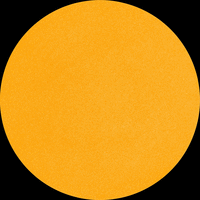Earth about to enter ‘Mini Ice Age,’ expert warns
Article by Robert W Felixing. from "Ice Age Now"
As global warming propaganda is discussed, some scientists warn that a far different type of climate change is headed our way.

We should be bracing for a prolonged solar minimum that could last for decades, until the 2050s, says Prof. Valentina Zharkova, a professor of mathematics at Northumbria University in Newcastle, England.
Zharkova is not alone in saying that the earth is headed into a solar minimum. According to NASA, the Sun will reach its lowest activity in over 200 years in 2020.
“The Sun is approaching a hibernation period,” says Professor Zharkova, who has published multiple scientific papers on solar minimums.
“Less sunspots will be formed on the solar surface and thus less energy and radiation will be emitted towards the planets and the Earth.”
This could cause global temperatures to drop by one degree Celsius, says Dr. Zharkova, who also has a doctorate in astrophysics.
While a one-degree drop may sound insignificant, it could trigger a slow down in agricultural production. Agricultural seasons could be shorter for several decades.
As we have seen in the past couple of years when the snow in Spain and Greece in April and May demolished the veggie fields, and the UK had a deficit of broccoli, and other fruits and veggies.”
Zharkova also pointed to recent unusual chills in Canada and Iceland as evidence of the Grand Solar Minimum (GSM) already taking hold.
“We can only hope that the mini ice age will not be as severe as it was during the Maunder minimum,” Zharkova said.
The Maunder Minimum, known as a Grand Solar Minimum (GSM), occurred from the mid-16th century until the early 17th century, and coincided with a time on Earth known as the Little Ice Age.
“The reduction in temperature will results in cold weathers on Earth, wet and cold summers, cold and wet winters,” said Zharkova. “We will possibly get big frosts as is happening now in Canada where they see [temperatures] of -50C.
One solar scientist, Matthew Owens from the University of Reading, believes that any cooling effect of a GSM will be “vastly offset” by anthropogenic global warm
The sun is blank -- no sunspots. Credit: SDO/HMI
Sunspot number: 0
Updated 10 Feb 2020Spotless Days Current Stretch: 8 days
2020 total: 24 days (59%)
2019 total: 281 days (77%)
2018 total: 221 days (61%)
2017 total: 104 days (28%)
2016 total: 32 days (9%)
2015 total: 0 days (0%)
2014 total: 1 day (<1%)
2013 total: 0 days (0%)
2012 total: 0 days (0%)
2011 total: 2 days (<1%)
2010 total: 51 days (14%)
2009 total: 260 days (71%)
2008 total: 268 days (73%)
2007 total: 152 days (42%)
2006 total: 70 days (19%)
Updated 10 Feb 2020
Thermosphere Climate Index
today: 3.42x1010 W Cold
Max: 49.4x1010 W Hot (10/1957)
Min: 2.05x1010 W Cold (02/2009)
Updated 10 Feb 2020Spotless Days Current Stretch: 8 days
2020 total: 24 days (59%)
2019 total: 281 days (77%)
2018 total: 221 days (61%)
2017 total: 104 days (28%)
2016 total: 32 days (9%)
2015 total: 0 days (0%)
2014 total: 1 day (<1%)
2013 total: 0 days (0%)
2012 total: 0 days (0%)
2011 total: 2 days (<1%)
2010 total: 51 days (14%)
2009 total: 260 days (71%)
2008 total: 268 days (73%)
2007 total: 152 days (42%)
2006 total: 70 days (19%)
Updated 10 Feb 2020
Thermosphere Climate Index
today: 3.42x1010 W Cold
Max: 49.4x1010 W Hot (10/1957)
Min: 2.05x1010 W Cold (02/2009)
The Radio Sun
10.7 cm flux: 71 sfu
10.7 cm flux: 71 sfu




4 comments:
In 2012 and 2013 there were no sun spots?
Percentage indication means percent of sunspot or no sun spots?
By Kaustubh
very very interesting article by Rajesh Sir.
True as many people project global warming, mini ice age is new revelation!
Elusive Atlantic -> From Bermuda Triangle to Jet Streams.....
https://www.skymetweather.com/content/global-news/british-airways-covers-new-york-to-london-in-five-hours-sets-record-all-thanks-to-jet-stream/
Looks like 2019-2020 lots of rare events happening... Maharashtra becomes worlds wettest place, mini ice age discovery in pipeline....
Wheather our country will benefitted or looser?
Post a Comment